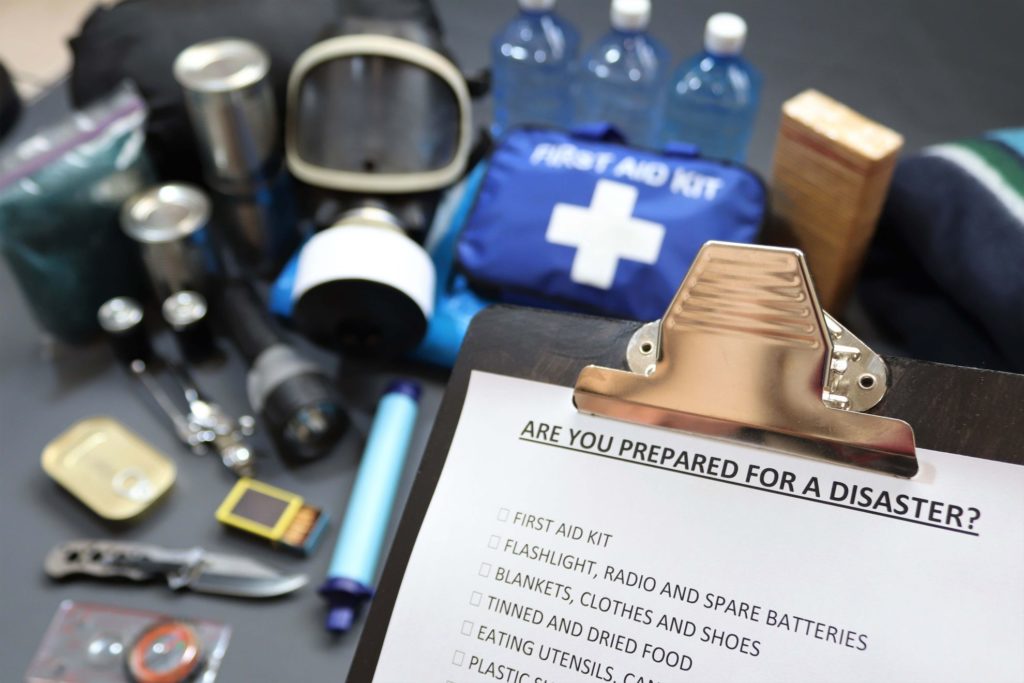Are you planning to relocate to a new address? If you’re about to switch states, there are crucial things you must learn. We will cover your options for health insurance when moving to another state. This is an essential topic for anyone who is relocating. You will need to gather all the necessary information in order to commence the next phase of your life properly at your chosen location.
Do I Have to Change Health Insurance if I Move out of State?
According to the research, the most common reasons to move involve personal needs and preferences. 44% of people in the US move with the family to another state. In addition to it, figures show that almost 10% of Americans move each year. Since so many people choose to change their address, learning about transferring health insurance to another state is paramount. First of all, you should know that the individual market coverage is regulated at the state level. This means that once you decide to move, you will have to get a new plan.
You will want to make sure you stay covered. To do so, you must report your move to the Marketplace as soon as you can. By doing so, you will be able to enroll in a new plan without any breaks in coverage. Moreover, you’ll avoid paying for healthcare policies you can’t use in the other state.

How Do I Get Health Insurance When I Move to Another State?
The studies from the past few years show that more than 90% of people in America have health insurance. The data obtained during 2019. suggested that 92% of US residents were insured. If you are moving state to state, follow all instructions carefully.
Relocating to a different state makes you qualified for a Special Enrollment Period. This implies you can enroll in new coverage or switch your plan even when the yearly Open Enrollment Period is finished. The way you apply depends on every state’s policy and whether they use HealthCare.gov or their website to admit applications.
Is Moving to a New State a Qualifying Event for Health Insurance?
Technically, there are several categories of qualifying life events. The main ones are:
- Various reasons for loss of health coverage,
- Major changes in a household (like getting married, divorced, having a child, or in case of a death within the family,)
- Changes in residence.
The third one includes multiple scenarios:
- A changed ZIP code or county,
- Moving for a seasonal work or education,
- Relocating to a shelter or transitional housing.

How to Transfer Health Insurance to Another State
Many people still find this task to be a bit of a challenge. Not all states apply the same rules and principles. You will have to do your research the same way you’ve explored the benefits of moving carefully. Firstly, see if your next hometown belongs to one of the states that use HealthCare.gov or its own website. If your home falls under the first category, here’s what you should do:
- Visit HealthCare.gov and log into your account,
- Select a time period (a year) for your coverage,
- Type your future address and look it up on this website. If it’s not on the list, you will see a button that will direct you toward its website,
- Lastly, you will confirm that you want your coverage to start. Once you do so, terminate the one you’ve previously used on your old address.
If you follow these four essential steps, you will report your move and resolve your insurance policy quickly and without any problems. Bonus tip: Since documents and important paperwork often make it to the list of the most commonly forgotten things to pack, always double-check the records you have in a written or printed form before you relocate. This is specifically crucial if you must move last-minute.

Update Your Information
Interstate moving qualifies as a major turning point and a significant life event. In addition to looking for the most affordable ways to move, notifying your siblings, neighbors and saying goodbye to your friends, you will have to update all your accounts. If social media comes to mind first, you might just be a millennial. Still, before updating your Instagram or tweeting about your experience with state to state movers, you must focus. This is your main concern: What happens to my insurance if I move out of state? Once you have reported a move and applied, you will have to deal with your Marketplace account.
These are the steps you will take to stay covered:
- Log in to your Marketplace account,
- Find your name in the top right corner of the screen, click on it, and select My Profile,
- After that, you should find the Edit button, which is next to the Address field.
Ultimately, you should report your email and phone number changes on your HealthCare.gov profile by following the same pattern.
In case a more detailed address than the one you have typed in pops up, you should select it. By doing so, you will provide the most accurate address information.

Can I Use My Health Insurance in Another State?
The shortest possible answer is yes. All insurance plans cover emergency services, regardless of the hospital and the part of the United States you find yourself in. The only exception to this rule is Hawaii. As long as your emergency can be interpreted as life-threatening, it will be covered as in-network, even if the hospital is not in your plan’s network. But surely, you would face some limitations.
That is why you would need to contact your current provider. The thing is that each health plan has a “network” of healthcare providers. It is better to check out where you fit. If you don’t obtain the proper information, your costs could skyrocket in case of an accident. For instance, if a car accident occurs, your provider would be obligated to cover it on your behalf. But still, most companies define an emergency quite loosely.
People who travel a lot can choose between supplemental coverage or switching to catastrophic coverage.
The first option is highly recommended to frequent travelers. It represents an add-on to your current coverage and ensures you nationally. If you picked it, some of the best choices include National General Trio Med or UnitedHealthOne.
Pro tip: If you are traveling or relocating to another state during the Coronavirus isolation, double-check every available information.
Resources and Valuable Information: Who Can I Contact?
You can (and should) get in touch with your provider and find out all you need to know. If you want to know exactly how everything works, here’s a set of questions you should ask them:
- If you are about to travel for work or pleasure, ask if there are any local service providers at your destination covered by your plan,
- In addition to it, you should check if any states are restricted,
- Be sure to learn what your company considers as an emergency. Many people are clueless about it since all providers take the liberty to interpret emergencies according to their standards,
- Make sure to understand if urgent care facilities are covered or does your coverage refer to emergency rooms only,
- Knowing which documents you will need is of the essence,
- Know if you will have to pay in advance and ask for a reimbursement,
- Ask if there are forms for out-of-network practitioners and privacy policies.
Whether you are traveling or relocating to another state alone or with family, you must be aware of everything that you’re entitled to.

Work and Healthcare Policy
If you are relocating without a job, your prime concern will be to get a job in a new city. On the other hand, if you are moving to another state for a job, you can also count on your employer’s help with getting insured. Workplace healthcare insurance is typically less expensive than getting an individual health plan. According to Federal law, large companies must pay at least half of health plan premiums. Statistics suggest that employers paid 67% of medical premiums for family coverage in 2020.
Affordable Insurance Policies
When you decide to relocate out of state, you will aim to move on a budget. When you consider all costs, tipping the movers included, you will look for ways to save up and get affordable solutions. Conduct a search by state and find a low-cost option that works well for you. This is imperative regardless of your status, number of family members, and the complete list of things you will do before relocating to a new state.
Bonus tip: If you’re low on cash, you could make some extra incomes by organizing a garage sale before relocation. And if you wish to hear an expert about your options for Medicare plan, check out the video below.
Health Insurance for Students
Students usually move frequently. Along with the seasonal workers, they are a group that switches places the most. Many choose more permanent relocation after college. In the meantime, they can be insured through one of these alternatives:
- If a student is under 26 years old, their parents can keep them on their insurance plan. When going for this option, see if the plan is state-specific and what it can cover.
- Students can request a school-sponsored insurance program, which is affordable and particularly suitable for foreign exchange students.
- A student can qualify for free health insurance (Medicaid) if they are legally “independent” with a low income.
- Students can also get a healthcare exchange, which is suitable for those who live in a different state from their parents and who have a bit higher earnings.
- All graduates strive to find a job after college, but most of them are employed during their studies. That means that the employer can also sponsor their insurance policies.
Turning 26 and Losing Health Coverage
Qualifying life events include losing existing health coverage that could be job-based, individual, or involve student plans. It can also refer to the cases of losing eligibility for Medicare, Medicaid, or CHIP. And, it often affects people who have turned 26 and lost their coverage through a parent’s plan. Once they turn 26, young adults qualify for a Special Enrollment Period which lets them enroll in a health plan outside Open Enrollment.

Explore Your Options for Health Insurance When Moving to Another State
If you want to move safely and cost-effectively in 2021, you should hire the best state to state movers and request all services that you need, including auto shipping as well as packing services. However, getting the most reliable moving services from a reputable company might not be sufficient for you to overcome the anxiety of moving out and feel stress-free during the move.
That is why you must think in advance of your health insurance. Only if you check every detail and policy, report your relocation, and submit your requests timely can you be sure that whatever happens, you will be protected and covered.










